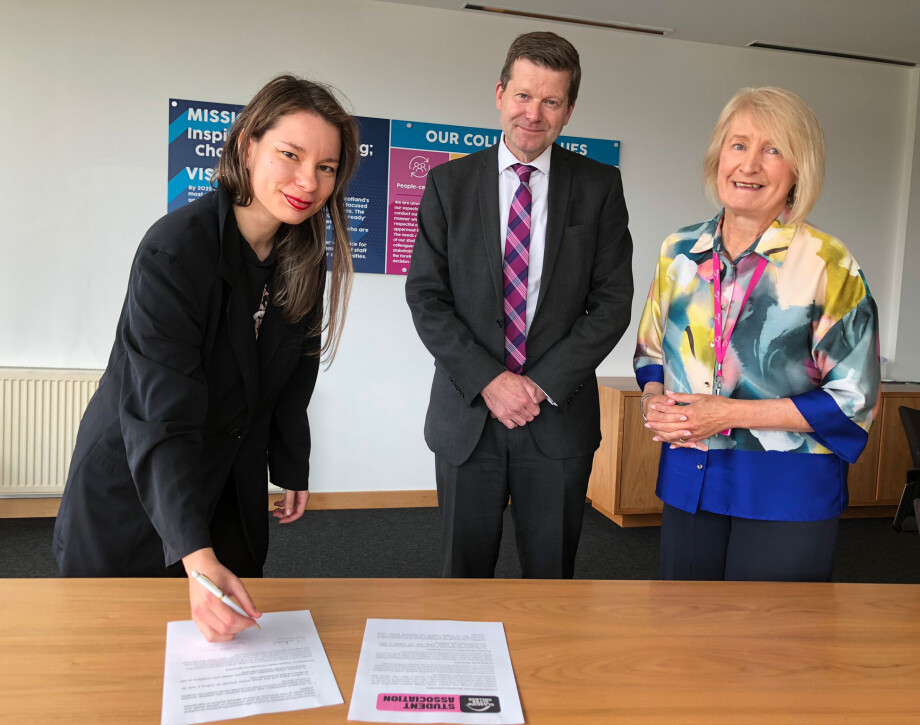Student Health and Wellbeing Agreement Signed

We're delighted to announce the signing on a new Student Health and Wellbeing Agreement by Jon Vincent, Principal and Student President, Martina Tuskova
This agreement represents a significant step forward in ensuring the health and wellbeing of our whole college community. By addressing mental health and wellbeing proactively, we aim to foster a culture where everyone feels supported, valued, and empowered to succeed.
STUDENT HEALTH AND WELLBEING AGREEMENT
Glasgow Clyde College and Glasgow Clyde College Student Association work collaboratively to ensure that every student has the opportunity to thrive at college, both academically and personally. We are committed to providing a positive and nurturing environment where everyone feels safe, valued and empowered to achieve their full potential.
Our inclusive and proactive approach to supporting students’ health and wellbeing stems from the understanding that everyone has mental health, just as we all have physical health, therefore it benefits all students to have access to information, resources and services which focus on how to stay well and thrive at college.
Details of the agreement are:
Purpose of the Agreement
The main purpose of this agreement between Glasgow Clyde College and Glasgow Clyde College Student Association is to develop and adopt a whole college approach to the health and wellbeing of all students and staff which is evidence based, effectively communicated and consistently implemented.
The following priorities have been identified for 2024-2026:
- To raise awareness college-wide of the connection between mental health and wellbeing and to actively engage staff and students in open conversations about their wellbeing.
- To design a suite of health and wellbeing resources which reach ALL students from enrolment onwards, via the college’s online learning platform. These will focus on building resilience and developing positive coping strategies.
- To increase the confidence of staff to offer appropriate guidance to students where there are concerns around their emotional or mental health and, importantly, to raise awareness of how to signpost students to appropriate support.
- To strengthen connections with external partners and establish seamless referral pathways to services which can provide timely support for students in mental distress.
- To reduce stigma and fear about mental ill-health by making it easy for students and staff to seek help early.
- To promote suicide prevention and increase college-wide confidence to talk openly about suicide and seek help early.
Image shows L-R: Martina Tuskova: Student President, Jon Vincent: Principal, Alison Cox: Mental Health Lead